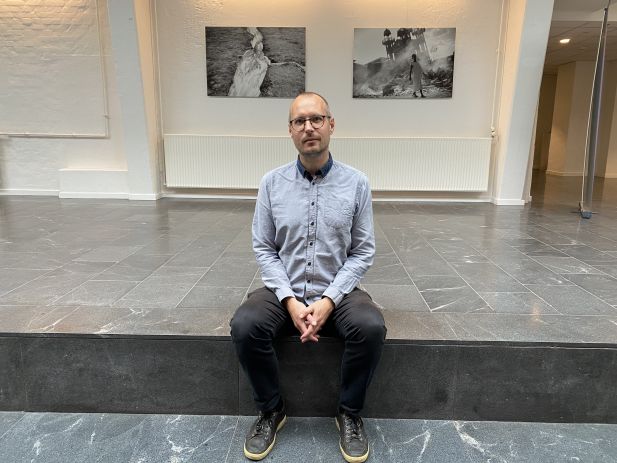What is the historical role of civil society elites in shaping modern societies? Anders Sevelsted is awarded the prestigious ERC Starting Grant to find the answer

For more than 170 years, leaders from civil society such as labour, peasant, religious and environmental groups have played vital roles. They sparked revolutions, influenced rules, helped shift governments, and turned ideas into national welfare systems. Civil society leaders will now take centre stage as a new MORALITES project will examine their profound impact on various facets of society.
Assistant Professor Anders Sevelsted at the Department of Business Humanities and Law will lead the new project which plans to shed new light on these civil society elites after being awarded approximately DKK 11 million (1.48 million Euros) from the European Research Council.
“Civil society elites have often been overlooked despite their crucial role. Our research plans to fill in this gap, tracing their historical influence on modern societies and illuminating their unique position 'between' societal elites and the general public,” says Anders Sevelsted.
A paradigm shift in societal understanding
Covering a span of approximately 170 years, from 1848 to the present day the project starting in January 2024 will embark on a journey through history across four European nations – Poland, Italy, Denmark and the UK.
“What sets these civil society elites apart is that unlike conventional elites entrenched in economic or intellectual dominance, these leaders derive their legitimacy from the resources of civil society – members, volunteers, and voluntary donations. Civil society elites operate within a different sphere, relying on distinct resources and navigating different expectations,” adds Anders Sevelsted.
The project will explore how their biographical backgrounds and career trajectories intersect with their moral and ideological stances. The project holds the potential to reshape our understanding of societal evolution and could help change our understanding of the past, present, and future of societal development.
Analysing the past, navigating the future
The MORALITES project employs an innovative approach by examining junctures in history, like the pre-World War I era, the interwar period, post-World War II reconstruction, and the neoliberal turn from the 1970s. At these critical moments, key civil society leaders' social networks will be identified, and written outputs will be scrutinised.
The project utilises advanced methodologies such as Social Network Analysis (SNA) and Topic Modeling. SNA shows the leaders' organisational affiliations and can thus document e.g. in what societal sectors leaders were embedded and their allegiances beyond civil society. Topic modelling will allow the researchers to handle large quantities of data and discover how certain topics (e.g. labour market relations) were framed.
Ultimately, the MORALITES project aspires to rewrite history's narrative. By scrutinising critical moments across different countries, the project uncovers paths not taken, offering alternative perspectives on societal institutions, governance, and social policy. Anders Sevelsted envisions the project as "a journey of historical accountability, where we reevaluate leaders’ historical actions and illuminate the possibilities that were left unexplored."
The implications for understanding modern society are profound. Comparing critical historical junctures across different countries may reveal opportunities missed and alternative futures that could have been pursued.
"This project might well be a tale of caution, reminding us that certain forms of totalitarianism might have been influenced by the dispositions of civil society leaders," adds Sevelsted.
Shaping today for tomorrow
The MORALITES project does not only want to resonate within academic circles; it plans to show practical benefits for civil society leaders and the general public. By gleaning insights from historical contexts, civil society leaders can navigate their roles more effectively. The project's findings can inform decisions, inspire innovative strategies, and foster a deeper understanding of present challenges.
"The ERC grant has empowered us to undertake a rigorous and large-scale comparison that would otherwise be unfeasible. This grant allows us to delve into the historical archives and provide a holistic view of these influential elite groups over time,” he adds.
“Ultimately the MORALITES project is a journey of discovery that challenges preconceived notions, sheds light on the complexities of societal evolution, and has the potential to shape the future by reimagining the past,” Sevelsted concludes.